How Learning Happens: Seminal Works in Educational Psychology and What They Mean in Practice
£17.10£19.00 (-10%)
How Learning Happens introduces 28 giants of educational research and their findings on how we learn and what we need to learn effectively, efficiently, and enjoyably. Many of these works have inspired researchers and teachers all around the world and have left a mark on how we teach today.
Exploring 28 key works on learning and teaching, chosen from the fields of educational psychology and cognitive psychology, the book offers a roadmap of the most important discoveries in how learning happens. Each chapter examines a different work and explains its significance before describing the research, its implications for practice, how it can be used in the classroom and the key takeaways for teachers. Clearly divided into six sections, the book covers:
- How the brain works and what this means for learning and teaching
- Prerequisites for learning
- How learning can be supported
- Teacher activities
- Learning in context
- Cautionary tales and the ten deadly sins of education.
Written by two leading experts and illustrated by Oliver Caviglioli, this is essential reading for teachers wanting to fully engage with and understand educational research as well as undergraduate students in the fields of education, educational psychology and the learning sciences.
Read more
Additional information
| Publisher | 1st edition (4 Mar. 2020), Routledge |
|---|---|
| Language | English |
| Paperback | 328 pages |
| ISBN-10 | 0367184575 |
| ISBN-13 | 978-0367184575 |
| Dimensions | 17.4 x 1.88 x 24.6 cm |


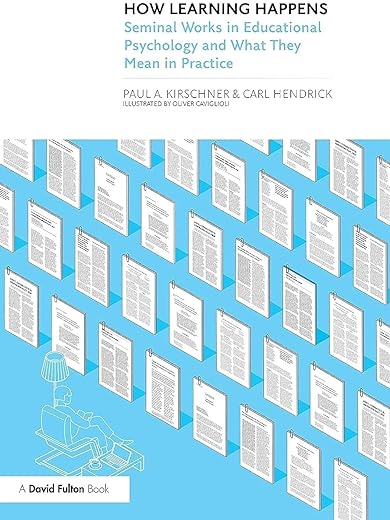
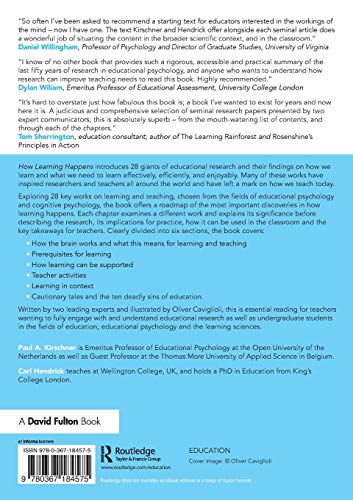

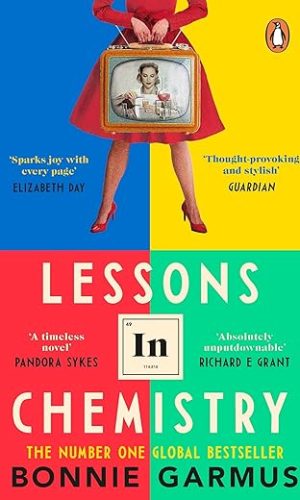


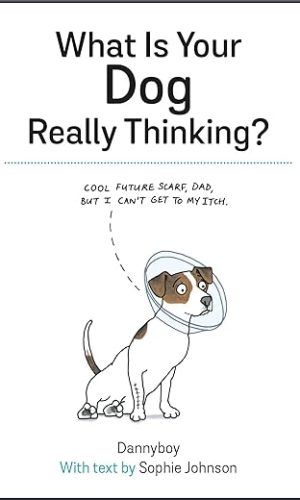

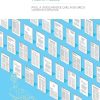
by Mr E. Mann
I love research-informed, concise, teaching books. This, as the authors would say, epitomises such a book.
This book is likely to bring about an intellectual goldrush in teacher training. This is for three reasons.
First, it’s clear and accessible. The chapters are logically organised, the subheadings immediately comprehensible and the summaries very useful for quick skims.
Second, the conversion of the research insights into practical advice is likely to be profoundly impactful for starting teachers who do not yet have the assuredness of how to apply research to practice.
Finally, the robustness of the chosen research itself, combined with the further reading, means that teachers will be more able to trust the foundations of their burgeoning pedagogical understanding such that misconceptions about teaching (e.g. learning styles matter) do not become embedded.
I really enjoyed reading this book. I was sad when it was finished. I gained some satisfaction from knowing that I am already applying many of the ideas presented here. I loved that the book itself adheres to the research itself – e.g. dual coded examples.
Read this book. Now.
by RJ7
Clear, consise detail, presented in a similar format for easy reading.
by P Kemp
I’m dipping into the book as needed and it’s a really fantastic introduction to some key theories and concepts in educational psychology. Each paper reviewed is within the broader research literature and links are made to teaching. A few things that stopped me giving this 5 stars (from my admittedly limited reading so far):
the index is poorly put together, e.g.
– Piaget get’s one link, to page 6, but also appears on pages 8,9 and 56.
– self-efficacy appears as two separate entries
– no mention for Vygotsky even though the “ZPD” is mentioned
A rather strange claim about the typing efficacy of children on page 27: “most kids today can type as fast as a teacher talks”. Really? The average typing speed is 40 words per minute, average speech is about 150 words a minute. The assumption might be that children are digital natives and they have super typing skills, but this “deady sin” hypothesis is dealt with on pages 298-99. Additionally, there is no citation for the research that the note on page 27 is referring to.
The last chapter descends into a blog post, covering the “deadly sins” of educational thought. The misconceptions are correct and the criticisms sound, but the refutations are largely unsupported by references. Leading to an “X (YEAR) said this, but it’s wrong because I say so and I’m expecting you to make your own connections to the literature”. Which is a bit of an anticlimax for a pretty solid book.
Figure 18.1 is a mangled version of Table 18.1. Better editing / proofing needed here.
There might be more errors hiding in there, but I’m still recommending it to my students. I’m waiting for the second edition.
by Kate Barry – teacher
Kirschner and Hendrick cleverly bridge the gap that exists between the many interesting books on teaching that offer insight but skim over the nitty-gritty research on which their advice is based, and on the other side the kind of academic books and journal articles that teachers suspect is out there but don’t have the time or expertise to find and digest for themselves independently. The book takes twenty-eight seminal research studies and for each one reproduces the abstract, gives a summary of the main points, suggests implications for classroom practice and offers some further reading in the area. Clear, practical and informative, this is a useful resource for teachers at any stage in their career.
by Joe Bathelt
Paul A Kirschner & Carl Hendrick: “How Learning Happens: Seminal Works in Educational Psychology and What They Mean in Practice”
In this book, the authors summarise a seminal paper from the fields of education, educational psychology, cognitive psychology or related area in each chapter and make recommendations on how this work can be applied in teaching. The chapters are grouped around broader themes, including brain science, cognitive mechanisms of learning, the role of the teacher, the learning environment, and common misconceptions. In general, I thought that the book was quite informative and provided a good overview of the foundations of education as a scientific discipline. However, I also felt that the book had quite a few shortcomings. My main issue is the structure of the book that focuses chapter around one paper. On one hand, this is useful for anyone who wants to get more detailed knowledge of the foundation of education research with relevant references. On the other hand, it feels like a bit of an intellectual cop-out. Rather than providing a coherent overview of a scientific field, this treatment feels piecemeal and misses the broader connections between separate research strands. In addition, the structure leads to some redundancy because the authors had repeat some points to provide the context in later chapters. Another shortcoming is that many of the seminal works are quite old. For instance, one of the last chapters about the use of technology in the classroom is based on a review from the 1980s. A more thorough treatment of this topic that incorporated research that is not 40 years old would have been quite relevant for many readers. Lastly, there are some issues with editing. There were several typos and spelling mistakes, tables were duplicated, and there were typesetting issues with the references at the end of each chapter. Also, please be warned if you are buying the Kindle edition that you will not be able to open this book on a Kindle device. At least, this was the case on my Kindle Paperwhite (2019 edition). It can be opened with the Kindle app and is displayed like a PDF.
In general, I would not recommend this book. I’m not very familiar with other textbooks in the area, but I expect that there are alternative foundational textbooks that are probably more informative for most readers.